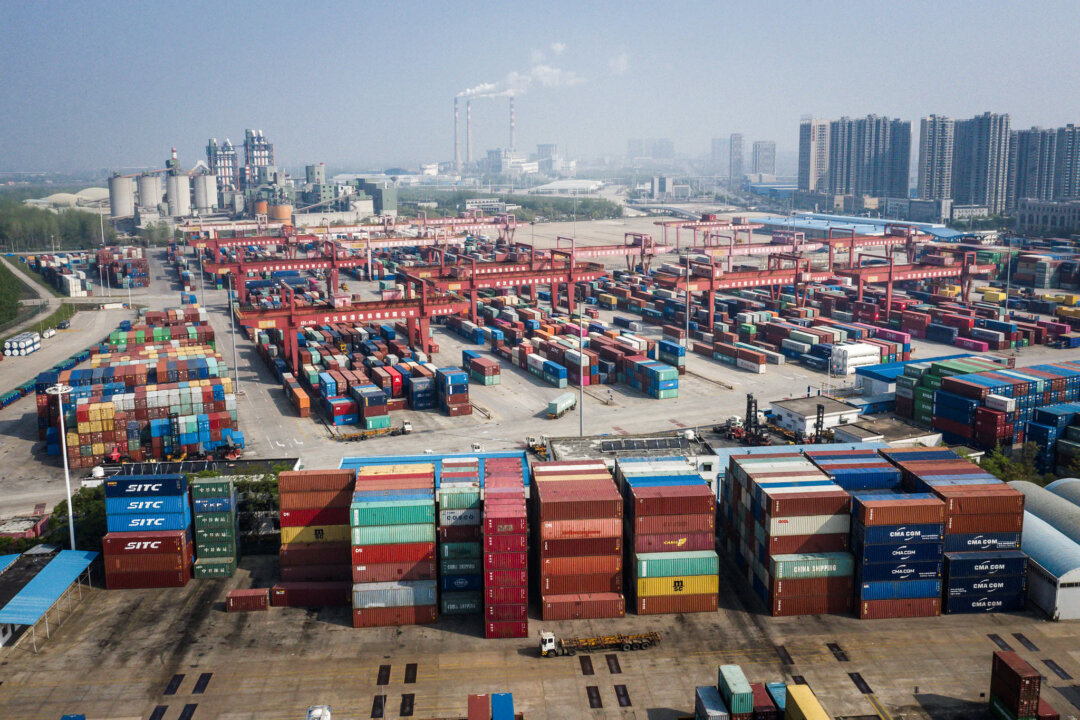Economic factors, regulatory hurdles, and geopolitical tensions are the main factors contributing to the challenging environment, a business lobby group said.
Doing business in China has been more challenging for British companies this year compared to last year, according to a survey published by the British Chamber of Commerce in China on Dec. 3.
“British businesses continue to face significant headwinds, from China’s economic slowdown to regulatory hurdles,” according to the business lobby group. “Revenue expectations are down, and businesses’ optimism for 2025 is low despite the announcement of stimulus measures.”
Of the 311 British companies surveyed, 58 percent reported that doing business in China has become more challenging over the past year. The companies identified various reasons for these difficulties: 86 percent attributed the challenges to economic factors, 49 percent to geopolitical factors, and 39 percent to regulatory factors.
This year marks the fifth consecutive year British companies have found the Chinese business environment has grown tougher. When asked about the business outlook for 2025, 41 percent were optimistic, down from 46 percent who expected better conditions in 2024.
The Chinese economy has continued to struggle, with a troubled real estate sector and weak consumer confidence. China’s industrial output growth slowed in October, and its third-quarter GDP grew at the slowest pace since early 2023. A Reuters poll published in October showed that China could miss its targeted GDP growth this year.
The British Chamber of Commerce conducted its survey between Sept. 23 and Nov. 4, the day before the U.S. elections.
“On the geopolitical front, companies remain wary of the broader global environment, particularly with the European Union’s recent tariff increases and the intensification of US-China and EU-China political rhetoric,” the survey reads.
The European Union has decided to slap tariffs of up to 45 percent on China-made electric vehicles. In the United States, President-elect Donald Trump said last month that he would impose an additional 10 percent tariff on any Chinese imports.
According to the Chamber’s survey, 33 percent of the companies expected their revenues to increase year-on-year in 2024, a drop from 45 percent in 2023.
Only 8 percent planned to reduce investment in 2025, the lowest level since 2021, the survey said. However, a record high of 16 percent were uncertain about the level of investment next year.
Navigating cybersecurity and information technology regulations has become the top concern for British companies in China for two consecutive years.
“Increased scrutiny and rapid implementation of new cyber policies have left organisations facing heightened compliance demands, with many reporting this as their number one regulatory priority,” the survey reads.
“The challenges are further amplified for firms with a heavy reliance on digital infrastructure, with sectors like creative industries, ITT, and financial services each noting the profound impact.”
Beijing’s Cybersecurity Law, which went into effect in June 2017, requires that all companies operating in China store their data within the country’s borders.
Some of the survey respondents said they faced increased challenges in accessing online resources outside of China’s borders, while others said curbs on cross-border data transfer “have negatively impacted” research and development.
Other regulatory concerns included transparency of China’s business environment, difficulties in obtaining business licenses and permits, and the protection of intellectual property (IP).
The Office of the U.S. Trade Representative, in a report published in 2018, called China the “worst infringer of American IP,” costing the U.S. economy between $225 billion and $600 billion annually.
The Chamber’s survey found that 29 percent expected the number of regulatory challenges to increase over the next five years, while 31 percent believed the number would stay the same, and 9 percent expected a reduction. The remaining 31 percent said they “cannot confidently say.”
“Despite Chinese government efforts to reduce regulatory barriers and attract foreign investment, many businesses have yet to experience meaningful regulatory stability,” the survey reads.
“This lingering uncertainty continues to temper long-term confidence in the market.”
Reuters contributed to this report.

